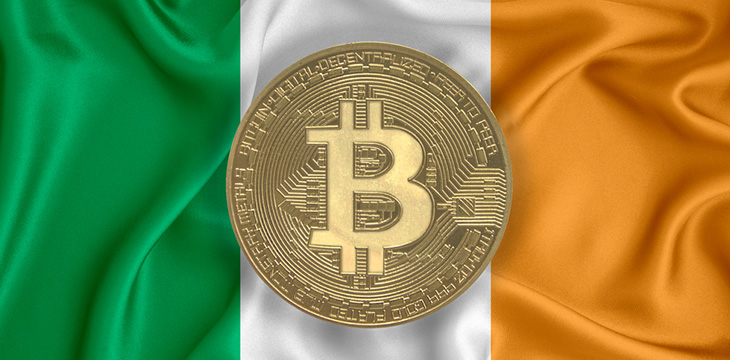|
Getting your Trinity Audio player ready...
|
Ireland could become the latest country to crack down on digital currency ads at a time when other jurisdictions including the United Kingdom, Spain, Singapore, and others have taken a tough stance. The country’s advertising watchdog is reviewing its guidelines to protect investors from ‘misleading’ ads.
The Advertising Standards Authority of Ireland (ASAI) revealed that it’s responding to the rise in digital currency popularity in the country, which has forced many virtual asset service providers (VASPs) such as exchanges, digital currency wallets, and even digital currency projects to push their ads aggressively to lure customers.
According to a spokesperson for the ASAI, many of these ads don’t fully explain the products and services they promote. There are others that downplay the risks that investing in digital assets could pose to investors, he added.
“The ASAI is considering reviewing whether additional rules and/or guidance is required in light of the emerging trend of cryptocurrency business advertisements,” the spokesperson said, speaking to the Irish Independent.
According to the spokesperson, digital currency ads must abide by the current financial product ads guidelines, even as the regulator weighs whether it needs new regulations for the virtual assets industry or if it will amend the existing ones to accommodate new developments.
“The ASAI is aware of concerns about consumer knowledge of cryptocurrencies. As well as the general rules on truthfulness, honesty and substantiation, the ASAI code contains rules related to financial advertising,” the spokesperson added.
Floki Inu, a meme coin named after Elon Musk’s dog that has been posing as the next Dogecoin, has been one of the projects whose aggressive ads have attracted the ire of regulators globally. In the U.K., the Advertising Standards Authority (ASA) banned an “irresponsible”Floki ad that had flooded the London Underground network urging investors to flock to Floki if they’d missed the Dogecoin mania.
In Ireland, the ASAI also banned Floki Inu ads which had been plastered on 150 buses in Dublin. This was after it received several complaints from consumers regarding the “Missed DOGE? Get Floki” ads. Floki had failed to point out that investing in the meme coin came with its risks and its value could either go up or down.
The ASAI is just one of Irish regulators looking into digital currencies as adoption soars. In March, the Central Bank of Ireland (CBI) issued a warning against digital assets, describing them as “highly risky and speculative.” It also expressed concern against misleading advertisements and influence from social media campaigns.
A CBI official commented that the central bank was “seeing increasing levels of advertising and aggressive promotion of crypto asset investments. While people may be attracted to these investments by the high returns advertised, the reality is that they carry significant risk.”
The country’s tax agency, known as Revenue, is also reviewing its taxation methods to accommodate digital currency investments. It claimed to be “updating and expanding” its guidance on the treatment of digital assets to ensure that investors don’t evade taxes.
Currently, Revenue relies wholly on digital asset investors’ self-reporting their gains with no way of following up to confirm the figures, leaving a loophole that investors can exploit to evade taxes. The agency is pushing to have exchanges and wallets forced to report the details of all their clients, making taxation for traders much easier.
The U.S. Internal Revenue Service (IRS) has taken similar measures. Back in November 2017, a federal judge ordered Coinbase (NASDAQ: COIN) to surrender identifying information to the taxman for all clients with more than $20,000 in annual transactions.
In Ireland, Revenue is also looking at how to tax Irish residents who own digital assets outside the country as well as non-domiciled individuals who trade digital assets in Ireland.
Watch: CoinGeek New York presentation, Integrating Business Apps with BSV Blockchain: Europe’s First Large-Scale Adoption

 03-02-2026
03-02-2026 




